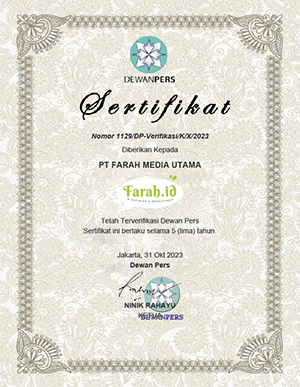By: Dinurriza Rahma, University of Muhammadiyah Prof. Hamka
This article discusses practical time management tips. Effective time management can improve the quality of goal-setting and have an impact on all facets of life, including employment, education, and personal relationships. With this skill, you can finish more chores more effectively or in the most efficient manner.
Prioritizing duties and essential assignments should come before managing our time. Establish priorities. If you can manage your time well and focus on the most critical tasks first, the rest of the work will flow smoothly.
Advance
Time management is one of the keys to success for a businessman or leader who wants to balance work life, relationships and time freedom. Time management can be said to be a technique for managing and increasing the effectiveness of time. This is in accordance with the definition of time management according to Atkinson, namely skills related to various efforts and planned actions so that someone can make the best use of their time.
Time management skills can help reduce stress levels and push productivity to higher levels. Time management that is implemented well will have a positive impact on the quality of goal setting and influence all aspects of life, both personal, educational and career. Armed with these abilities, you can complete more and better work or tasks in the most productive way.
The Meaning of Time Management
Time management is the process of planning, controlling, and using the maximum possible amount of time to complete certain tasks. According to Forsyth, time management can be interpreted as a way of controlling time to create effectiveness and productivity. The ability to stay focused on priorities is the key to maintaining productivity which will lead you to success in life.
The word "time management" refers to the way in which individuals view effective utilization of their time as helpful and beneficial. Everyone needs to have excellent management of time skills. By choosing an effective time, we may decide which time is important to finish first.
Tips for Effective Time Management
Effective time management is essential for maximizing productivity, reducing stress, and enhancing overall quality of life. Here are several actionable tips that can help you manage your time more effectively:
1. Set Clear Goals
Begin by defining what you want to achieve both in the short and long term. Use the SMART criteria (Specific, Measurable, Achievable, Relevant, Time-bound) to ensure your goals are well-structured. Clear goals help you focus and allocate your time where it’s most needed.
2. Prioritize Tasks
Use the Eisenhower Box or a similar method to prioritize tasks based on their urgency and importance. Focus on what needs to be done first, distinguishing between what is essential and what could potentially be delegated or postponed.
3. Plan Your Day
Spend some time each night or morning to plan your day. Use tools like calendars, planners, or digital apps to schedule your tasks. Incorporate buffers between tasks to handle unexpected interruptions or delays.
4. Set Time Limits
Assign specific time slots for each task. This not only helps in completing tasks on schedule but also aids in minimizing procrastination. Using techniques like the Pomodoro Technique (working in short bursts with breaks in between) can increase focus and efficiency.
5. Eliminate Distractions
Identify what typically distracts you in your work environment and take steps to reduce these interruptions. This might mean setting boundaries with colleagues, using technology mindfully, or organizing your workspace to minimize distractions.
6. Learn to Say No
Taking on too many tasks can overwhelm you and dilute the quality of your work. Be selective about what you agree to take on and don’t be afraid to say no when necessary to maintain your primary focus on your main objectives.
7. Use Technology Wisely
Leverage technology to save time. Automate where possible, use project management tools to keep track of progress, and utilize apps designed to enhance productivity. However, be mindful of the time spent on devices and social media.
8. Review and Adjust
Regularly review your progress towards your goals and the effectiveness of your time management strategies. Be prepared to adjust your plans or methods as needed based on what is or isn’t working.
9. Take Care of Your Health
Effective time management isn’t just about work. Ensuring you have enough time for rest, exercise, and leisure activities is crucial. Good physical and mental health optimizes your energy levels and focus, making it easier to manage your time effectively.
10. Delegate When Possible
Recognize the tasks that you don’t need to do yourself. Delegating can free up your time for higher priority projects. Trust your team or family members and resist the urge to micromanage.
By integrating these tips into your daily life, you can significantly improve how you manage your time, leading to better performance, less stress, and a higher quality of life. Time management is a skill that requires continuous improvement and adaptation, so stay committed to refining your approach.
Time Management Benefits
The capacity to prioritize work and boost production are two advantages of efficient time management. Furthermore, by being aware of these benefits, we can fulfill our aims and raise our standards.














KOMENTAR ANDA